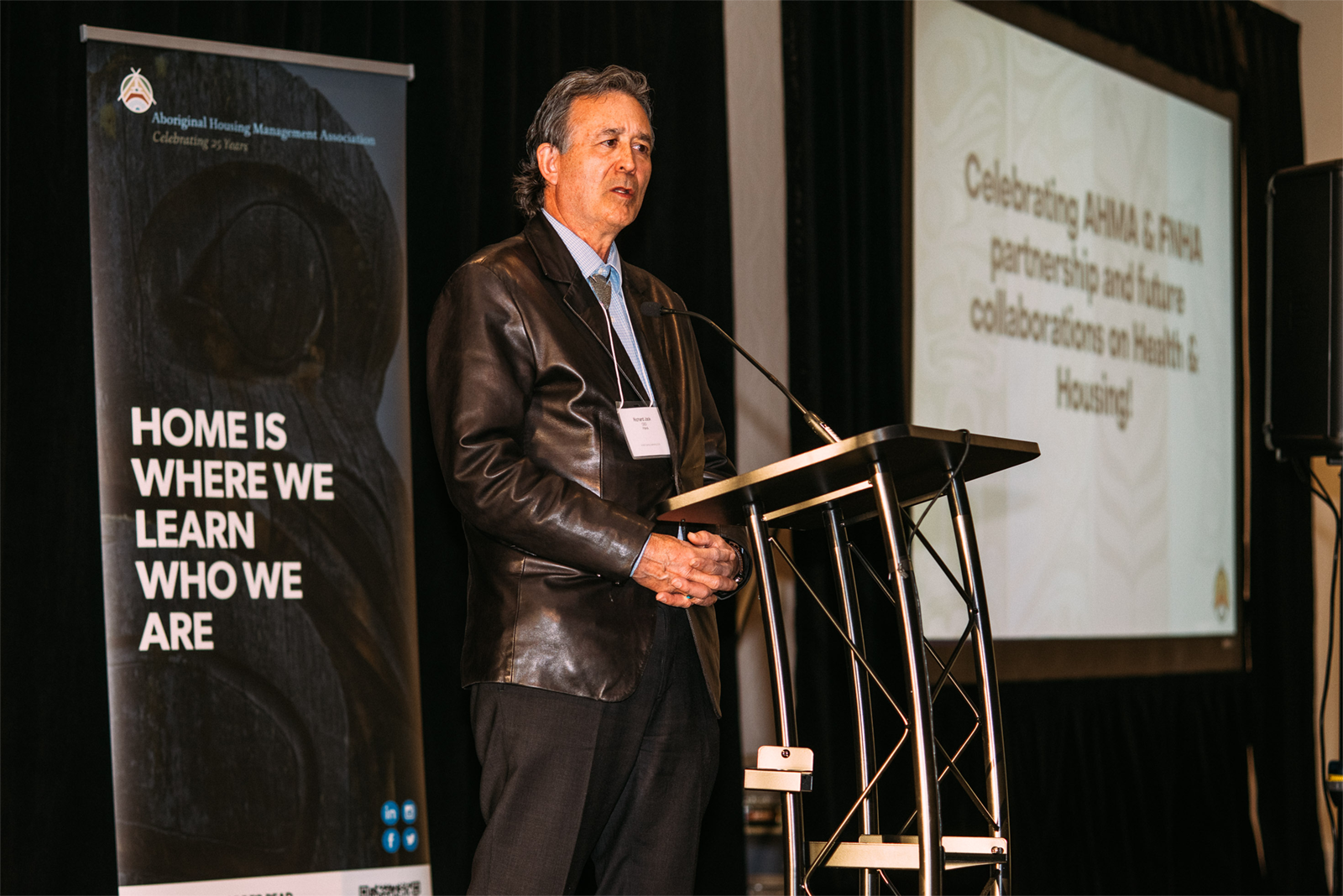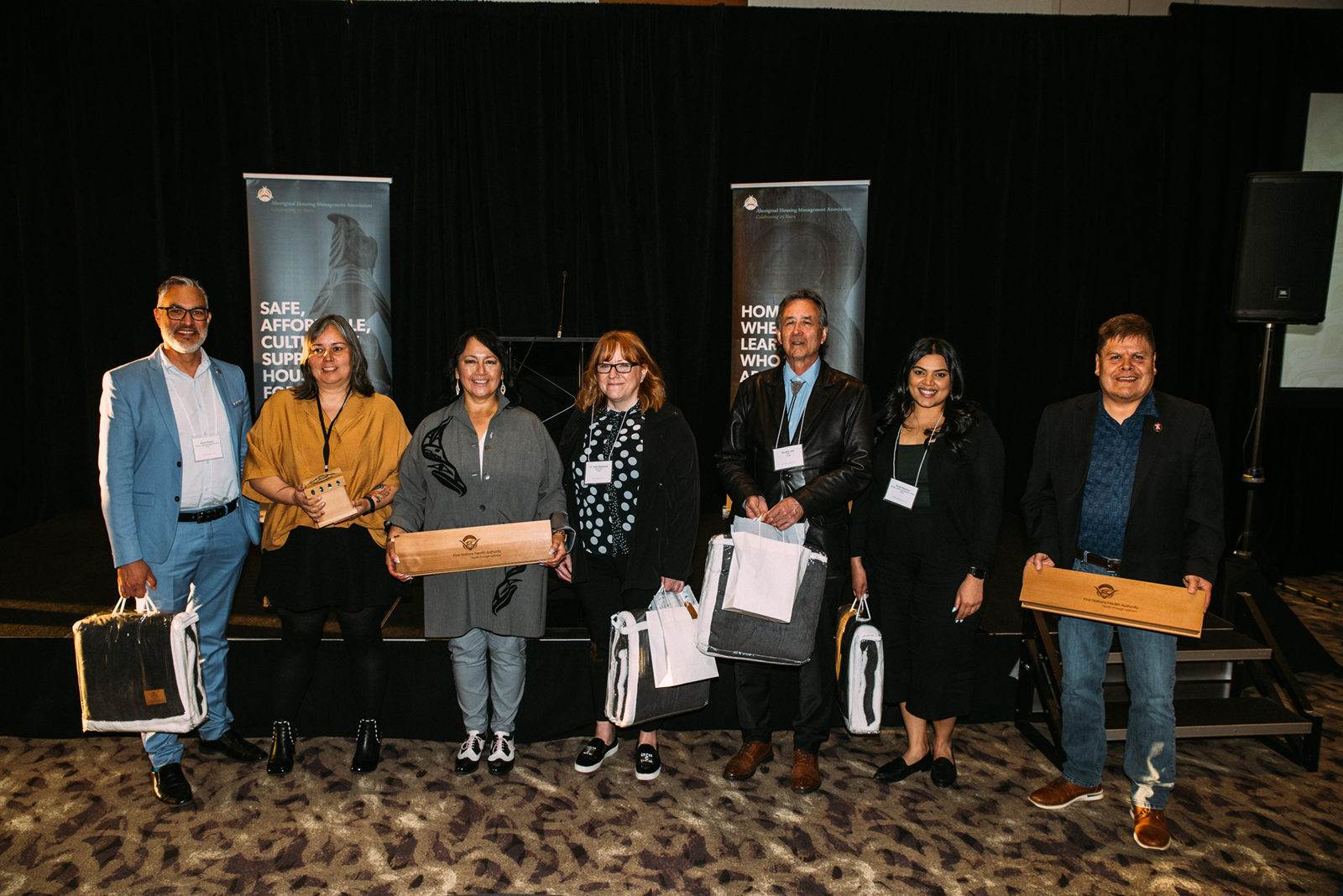Unceded territories of the xʷməθkʷəy̓əm (Musqueam), Sḵwx̱wú7mesh (Squamish) and səlilwətaɬ (Tsleil-Waututh) Nations, Vancouver – First Nations people in BC will benefit from improved health and housing outcomes as the Aboriginal Housing Management Association (AHMA) and the First Nations Health Authority (FNHA) sign a historic, new Memorandum of Partnership.
“We all know that housing is health care," said Margaret Pfoh, AHMA's CEO. “When someone's health needs are met, they need a place to call home so they can rest, recover and thrive. This collaborative effort will help provide Indigenous housing societies with integrated wellness services - something we welcome and celebrate."
The Memorandum of Partnership establishes AHMA and FNHA's shared commitment to improve the wellness of First Nations people living in British Columbia and strengthens the partnership between the two organizations.

“Housing is an integral determinant of health with many barriers that need to be addressed," said Richard Jock, FNHA's CEO. “Signing this Memorandum of Partnership is a big step for the FNHA and AHMA working together as it will allow us to refocus our efforts to achieve our shared goals of improving the overall health and wellness of First Nations People in BC."
The AHMA and FNHA will develop a collaborative work plan to help better connect First Nations People in BC to services and supports. This collaboration will help advance health and housing outcomes for First Nations people in British Columbia.
“It takes broad collaboration and a deep understanding of the existing wellness needs that connect housing with health care to make a difference," said Pfoh. “That is why we are working together to help ensure a better future, and we invite all government Ministries to support this effort."
“On behalf of the First Nations Health Authority, I look forward to working with the Aboriginal Housing Management Association," said Jock. “The work we are embarking on, with the support from our partners in and out of community and at the Provincial and Federal levels will help break down barriers in health care and beyond for BC First Nations."
“Many Indigenous people have complex health requirements that need to be met and it takes broad collaboration to help ensure improved support," adds Pfoh.

Media Contacts
About AHMA
The Aboriginal Housing Management Association (AHMA) has over 25 years of expertise in advancing housing rights for Indigenous Peoples. We are Canada's first For Indigenous, By Indigenous housing authority. AHMA members manage over 95% of all Indigenous housing units located off-reserve in BC and AHMA administers funds for over 10,000 Indigenous individuals and families living in urban, rural, and northern parts of the province. We also advocate broadly for Indigenous housing, provide operational guidance, conduct research, support asset management, and much more. AHMA members provide a spectrum of trauma-informed, culturally safe housing including affordable housing units, homeless shelters, transition homes, supportive housing, and assisted living facilities. Many of AHMA's members also offer many services including homelessness prevention, parenting supports, mental health and addiction programs, complex care, and more. In terms of scale, AHMA members make up over one-third of Indigenous housing providers in Canada.
About FNHA
The FNHA partners with over 200 diverse First Nations communities throughout the province to embed cultural safety and humility within a broad range of health programs and services. The FNHA largely focuses on health promotion and disease prevention in order to uphold its top priority – the health and wellness of BC First Nations.
About Complex Care
One of the latest innovations in BC related to health in housing is called Complex Care, which enables AHMA providers to offer culturally supportive housing that serves Indigenous tenants with complex health requirements by providing wraparound services that support health and wellness. The Complex Care program is a collaborative funding model supported by two BC Ministries that directly answers the call for appropriate funding for integrated health services.

